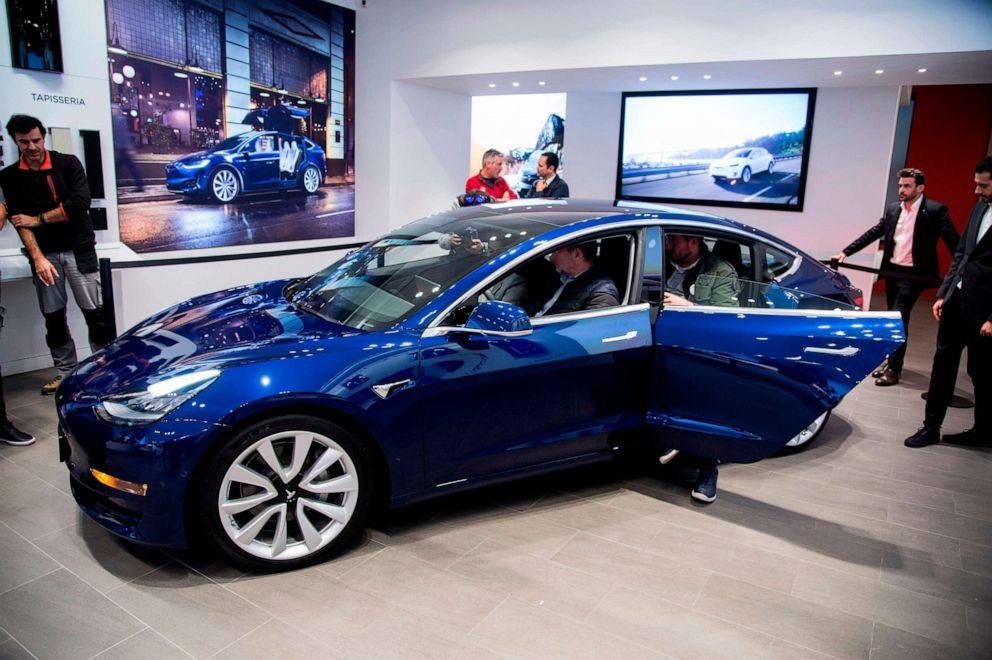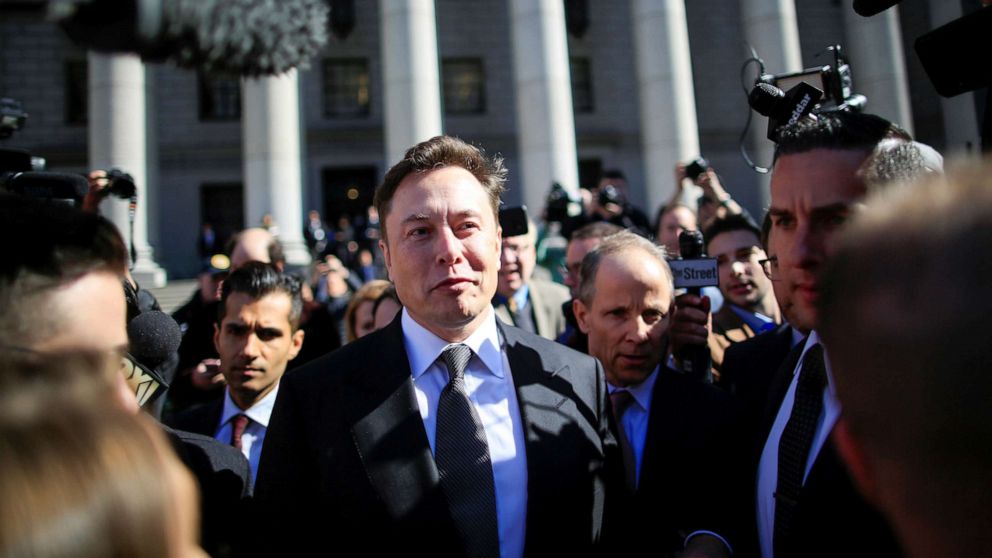Tesla Model 3 will come standard with autopilot, online sales to stop
Tesla has changed its mind on the Model 3 again.
The company is ending online sales of the long-promised $35,000 base Model 3, expanding its autopilot feature to all trim levels of the vehicle and introducing a leasing option, Tesla announced in a blog post late Thursday.
The changes were being made "to simplify vehicle choices and make Autopilot more affordable," the post said.
By ending online sales for the Model 3, the company is reversing decisions it made as recently as a few weeks ago to close most stores to focus on online sales, then flipping on that to announce it would keep most stores open.

Standardizing the car's autopilot feature to all trims — a feature that has been blamed for several accidents across the U.S. and is the crux of ensuing lawsuits — also affects its pricing options.
"All Tesla vehicles now come with Autopilot bundled as a standard feature for less than the prior cost of the option. For example, Model 3 Standard Plus used to cost $37,500, plus $3,000 for the Autopilot option. It now costs $39,500, with Autopilot included," the post said.
Tesla's just-announced leasing program is also part of what appear to be larger ambitions: Customers won't be able to own the car at the end of the lease. Instead, they will be returned to the company to form a fleet for its future ride-hailing service.
The updates come against the backdrop of the company's continuing struggles to deliver the Model 3 at a $35,000 price point and move the automaker from a niche luxury brand into a maker of affordable electric vehicles for the masses.
However, the company has been hampered by public problems, ranging from fines by the Securities and Exchange Commission (SEC) over founder and CEO Elon Musk's tweets to more behind-the-scenes turmoil, such as 7% cuts in its workforce in January. Those layoffs marked the second round of mass firings in six months. The company has also seen several executive turnovers.
Industry experts greeted the news with wariness.
"After years of being a media and enthusiast darling, Tesla is now facing a reckoning. Between the cost cuts, waning demand for its vehicles and now making the $35,000 Model 3 much harder to buy, the company is now quietly realizing it has to play by the same rules as every other automaker," Jessica Caldwell, executive director of industry analysis at automotive research firm Edmunds, told ABC News
The grandiose promise that has become the thorn in Musk's side is the $35,000 price point. He reiterated this when he announced the January layoffs, writing about the twin goals of cutting costs and ramping up the production rate of the Model 3.
"Higher volume and manufacturing design improvements are crucial for Tesla to achieve the economies of scale required to manufacture the standard range (220-mile), standard interior Model 3 at $35k and still be a viable company. There isn't any other way."
Musk promised a $35,000 Model 3 as early as 2016 and has yet to deliver. In February, he announced the cars were ready to ship, although no delivery date was named.
"Tesla was the one who decided that $35,000 was the magic number for an affordable [electric vehicle]," Caldwell said. "The company backed itself into a corner by making such a big deal about the Model 3 being that exact price without knowing exactly how they were going to do it. Because most Tesla buyers opt to pay extra for all the high-tech features, this likely won’t have a huge impact on Model 3 sales, however, it does deliver another tough blow to the company’s reputation."
Tesla also recently lost a buffer on pricing because of the United States' electric vehicles policy. The electric vehicle tax credit, which offset the price of a new Tesla by $7,500 was halved on Jan 1, so it is now only $3,750.
The tax credit applies to all manufacturers for their first 200,000 vehicles. Then it's halved and then halved again before it is phased out. As a result of the reduced credit amount, Tesla had been attempting to slash prices.




